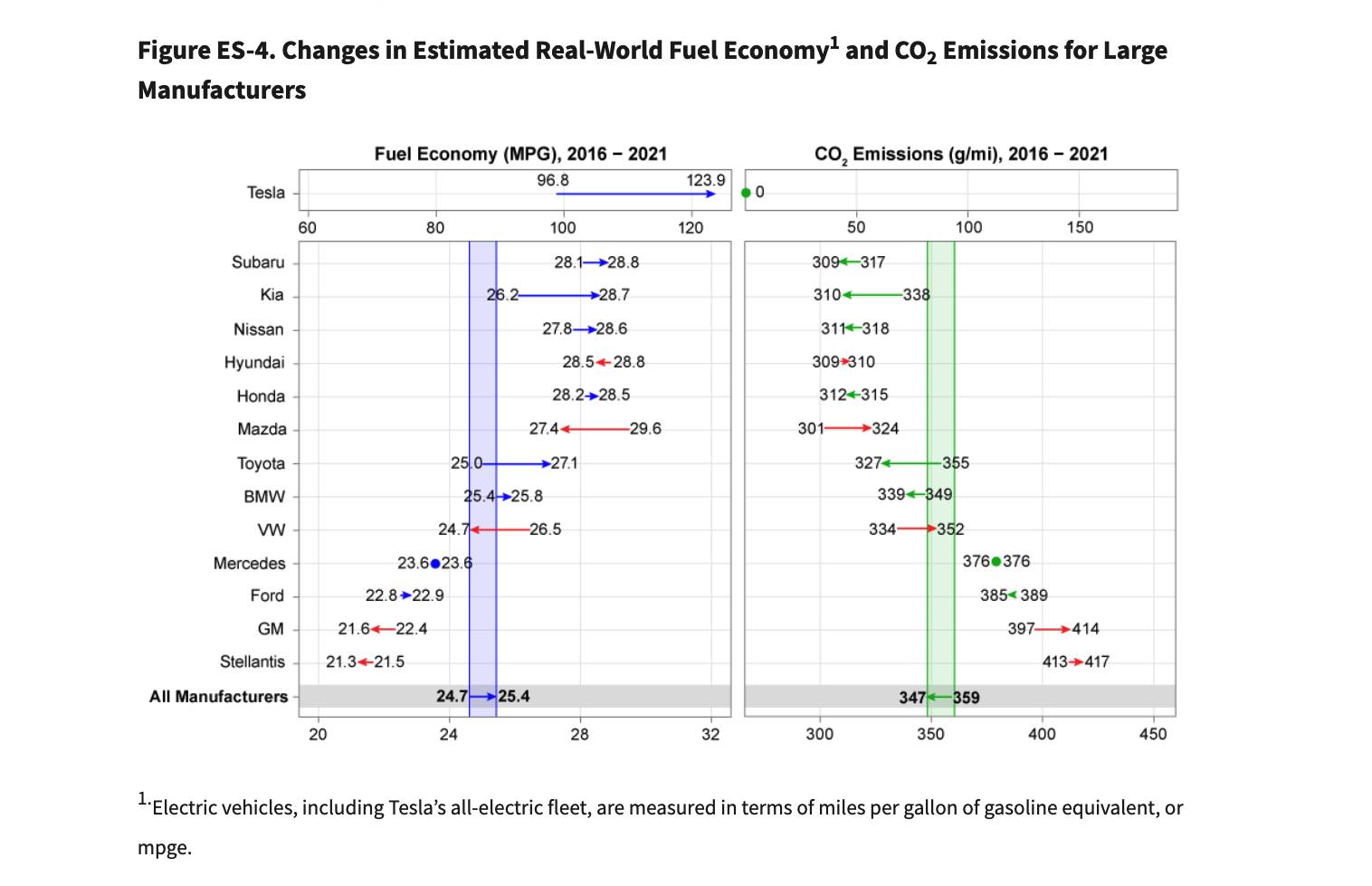|

Report: GM and Stellantis paid record fuel economy fines
General Motors and Stellantis paid a combined $363 million in penalties for failing to meet U.S. Corporate Average Fuel Economy (CAFE) requirements for recent model years, Reuters reported Friday.
The record amount includes $235.5 million paid by Stellantis for 2018 and 2019 model-year fuel economy shortfalls and $128.2 million for GM covering model years 2016 and 2017, according to the report. It cites records showing the GM and Stellantis penalties were paid in December and May.
Stellantis was created in 2021 from the merger of Fiat Chrysler Automobiles (FCA) and the PSA Group. FCA once depended on buying emissions credits from Tesla to compensate for a lineup heavy on pickup trucks and SUVs. In 2021, Stellantis said it wouldn’t need Tesla emissions credits, in Europe at least. But the EPA’s 2022 Automotive Trends Report shows Stellantis as last among large automakers in U.S. real-world fuel economy, as of the 2021 model year.
Click to Read More
|
|
   
Maverick Corporate Spending: a Hidden Cost in Fleet Management
   
Corporate maverick spending — sometimes known as rogue spending — refers to unauthorized or improper expenditures made by employees within a company without proper approval or adherence to established financial controls. It involves individuals within an organization using company funds for personal purposes or non-business-related expenses, often with the intention of benefiting themselves or others at the expense of the company’s financial well-being.
Rogue spending can take various forms, such as:
- Employees use company credit cards for personal expenses.
- Submitting fraudulent reimbursement claims.
- Diverting funds for personal use.
- Making unauthorized purchases on behalf of the company without proper justification or approval.
These actions typically violate internal financial policies, ethical standards, and potentially legal regulations.
The motivations behind rogue corporate spending varies. Some employees may engage in such behavior due to financial pressures, personal greed, or a sense of entitlement.
Click here for full article
|
|

Toyota’s Transformative Battery Technology Set to Revolutionize the Automotive Industry
With demand for EVs continuing to soar, manufacturers are trying to keep up with consumer demand while ensuring key expectations are met. While current technologies are as advanced as they have been, there are still a number of challenges the automotive industry must address when it comes to EVs, such as driving ranges and costs.
Japanese Car Manufacturer Toyota, the world’s leading automotive manufacturer, has recently announced it will concentrate its efforts on battery electric vehicle (BEV) technology with the launch of a dedicated BEV factory which will produce revolutionary, evolving batteries to meet consumer expectations and lower the price of BEVs in the long term.
Toyota claims that by 2026 the next generation square battery it is developing for use in its BEVs will be able to facilitate a cruising range of 1000 km (around 620 miles).1 Moreover, due to this focus on improving driving range efficiencies, Toyota states that consumers should expect to see advances in battery aerodynamics as well as weight reduction with faster charging times.
You can learn more here
|
|